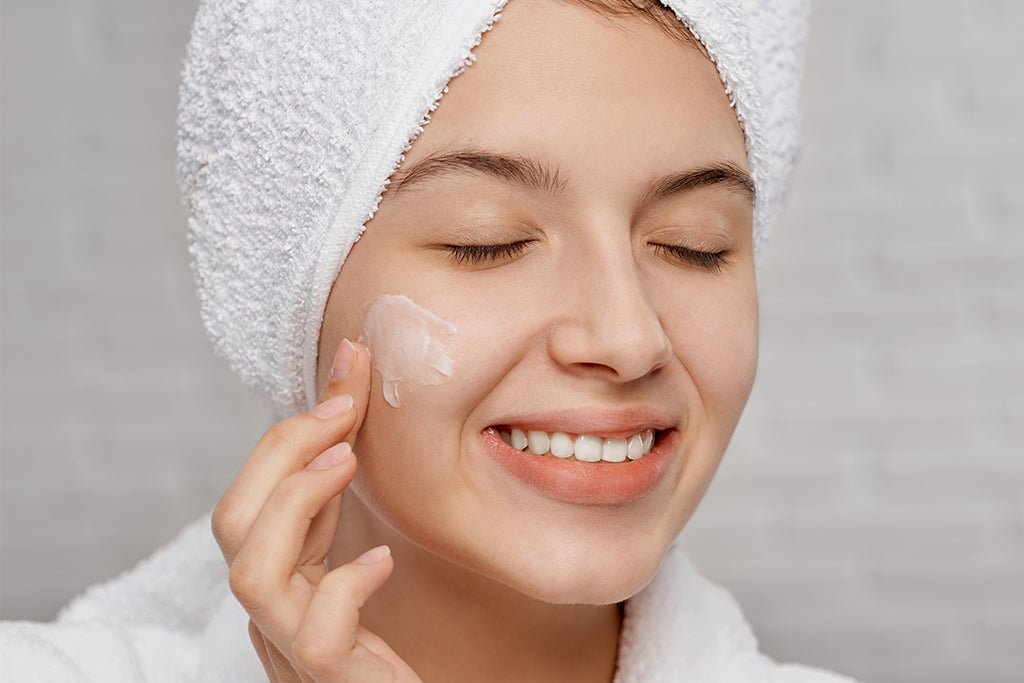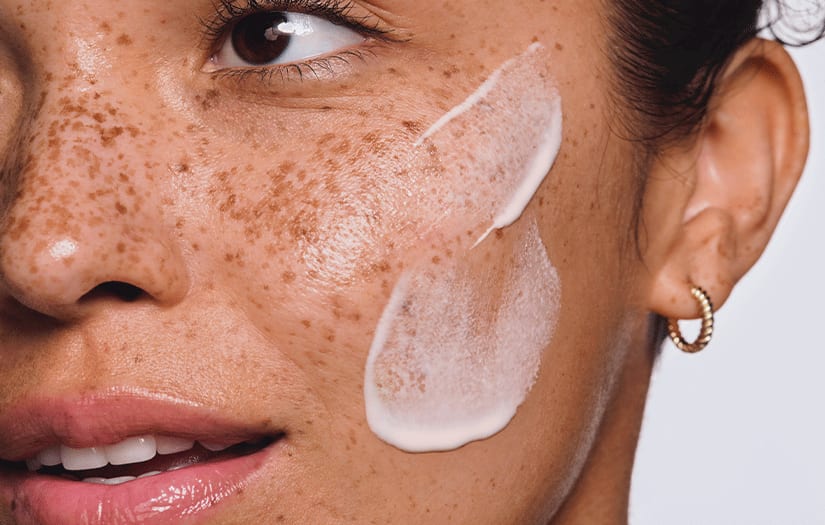
3 Dry Skin Myths That Could Ruin Your Vacation (and What to Do Instead)
Vacations are meant to be magical. Whether you’re chasing sunsets on a tropical island, cozying up fireside in a snowy cabin, or jetting off on a much-needed digital detox, the goal is always the same: rest, recharge, and look and feel your best. But let’s be honest—there’s nothing like unexpected skin issues to throw a wrench in your well-deserved escape.
You know the drill: you step off the plane feeling dehydrated, your face looks dull in photos, your makeup won’t sit right, or your skin suddenly decides to flake, crack, or break out—all while you’re supposed to be sipping cocktails and soaking up good vibes. If you have naturally dry, sensitive, or reactive skin, you already know that travel can be a minefield of environmental triggers.
From the recycled air in planes, the blast of hotel air conditioning, to sudden climate changes, salty oceans, or chlorinated pools—your skin goes through a lot when you travel. And unfortunately, some of the skincare advice you’ve heard might be doing more harm than good.

What’s worse? Many of us don’t even realize we’re making things worse because we’re unknowingly following skincare “rules” that are totally outdated or flat-out wrong—especially when it comes to managing dry skin on vacation.
Whether you’re prepping for a weekend getaway, planning an overseas adventure, or just hopping on a plane for business, keeping your skin happy, hydrated, and glowing should absolutely be part of your pre-trip plan. And it all starts with busting a few common dry skin myths that could be sabotaging your glow before you even take off.
Myth #1: “If It’s Humid, I Don’t Need Moisturizer”

This one sounds logical—after all, if the air feels sticky and moist, surely your skin is hydrated too, right? Wrong. Just because you’re sweating doesn’t mean your skin is getting the hydration it needs.
Here’s why this myth needs to go:
- Humidity increases sweat, not moisture inside the skin barrier.
- Heat and sun exposure actually strip away natural oils, leaving skin even more vulnerable.
- Air conditioning in hotels, airports, and airplanes dries out your skin even in humid climates.
Instead of skipping moisturizer in a hot destination, you just need to switch to a lightweight, hydrating formula that won’t feel greasy.
Vacation Skincare Tip:
Look for moisturizers with hyaluronic acid, glycerin, or aloe vera—they attract water into the skin without clogging pores or adding weight. A gel-cream or hydrating serum under SPF can do wonders.
Myth #2: “I’ll Just Drink More Water to Fix My Dry Skin”

Water is essential for health, no doubt. But relying on it alone to solve dry skin is like thinking drinking juice will cure sunburn. Yes, hydration helps—but it’s only part of the puzzle.
The truth about water and dry skin:
- Most of the water you drink goes to vital organs first, not your skin.
- Topical hydration is still essential—you need products that seal in moisture.
- Environmental factors (like wind, sun, and chlorine) dehydrate skin externally, which water can’t fix from the inside out.
- Over-washing or using harsh cleansers can undo any benefit from extra hydration.
So yes—bring your reusable water bottle everywhere, but don’t expect it to replace a proper skincare routine.
Vacation Skincare Tip:
Layer your hydration! Use a hydrating mist, a moisturizer, and if needed, a moisture-sealing balm on extra dry areas like lips, elbows, or sun-exposed spots.
Myth #3: “Sunscreen Makes My Dry Skin Worse”
:max_bytes(150000):strip_icc()/SkinTexture-b6405c638d3a4843bbe120dc752b1276.jpg)
We get it—some sunscreens can feel chalky, drying, or even make flaky patches more noticeable. But skipping SPF is a much bigger mistake, especially if you already have dry skin.
Why this myth is harmful:
- UV exposure breaks down your skin’s barrier, making it even drier and more prone to irritation.
- Dry skin is more sensitive to the sun and can burn faster.
- Sun damage leads to premature aging, dehydration, and long-term dullness.
Instead of skipping sunscreen, the goal is to find the right formula for your skin type.
Vacation Skincare Tip:
Choose a hydrating, non-comedogenic SPF with added skin benefits—look for ingredients like niacinamide, ceramides, or squalane. And reapply every 2 hours, especially after swimming or sweating.
Bonus Tips for Managing Dry Skin While Traveling

Dry skin is sneaky—it can flare up at any time, especially when you’re out of your normal environment. Here are some extra ways to prevent skin stress while you’re on the go:
In-Flight Hydration Checklist:
- Apply a hydrating serum + moisturizer before boarding
- Bring a mist or toner spray in a travel-size bottle
- Avoid alcohol or too much caffeine (both dehydrate)
- Apply lip balm and hand cream mid-flight
- Use a sheet mask if you’re brave enough!
At Your Destination:
- Avoid long, hot showers—they strip away natural oils
- Use gentle cleansers, especially if you’re swimming in chlorinated pools or salty water
- Don’t skip moisturizer, even in hot climates
- Use a nighttime repair cream or overnight mask after sun exposure
Simplify Your Routine:
- Bring only your core skincare heroes—don’t experiment with new actives while traveling
- Focus on hydration, barrier repair, and protection
- Avoid exfoliating more than once or twice a week on vacation
Table of Contents
FAQs: Dry Skin and Travel
Should I pack a different moisturizer for my trip?
Yes—opt for a lighter formula if you’re heading somewhere hot and humid, or a thicker cream if you’re going somewhere cold or dry (like a mountain or winter destination).
How can I tell if my skin is dehydrated vs. dry?
- Dehydrated skin lacks water (can happen to oily or combo skin too)
- Dry skin lacks oil (a skin type, not just a temporary state)
Signs of dehydration: dullness, tightness, fine lines
Signs of dryness: flakiness, rough texture, irritation
Can sunscreen really be hydrating?
Absolutely. Look for SPF formulas labeled “moisturizing,” “hydrating,” or “for dry/sensitive skin.” Ingredients like panthenol, ceramides, and hyaluronic acid can nourish while protecting you from UV rays.
Do facial oils help during travel?
Yes, if used correctly. Oils can lock in moisture after your hydrating layers but shouldn’t replace water-based serums or moisturizers. A few drops can be a lifesaver for dry cheeks or chapped skin on cold flights.
Conclusion: Keep Your Skin Glowing Wherever You Go
Vacations are supposed to be stress-free, so don’t let dry, irritated skin take away from your good time. The truth is, a lot of the skincare “rules” we think we know—especially about dry skin—just don’t hold up when you’re exposed to new climates, airplane air, and unpredictable schedules.
By understanding these myths and planning your travel skincare routine accordingly, you can enjoy your trip without worrying about redness, flaking, or discomfort. Just remember:
- Moisturizer is always a must—even in humid places
- Water helps, but it’s not your only defense against dryness
- Sunscreen is your best friend, not your enemy
- Hydration, protection, and simplicity are your skin’s vacation heroes